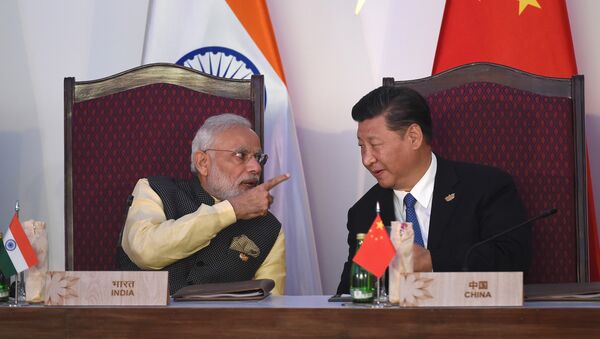Indian Government sources say the Bank of China's proposal has been held up because of apprehensions of an indirect role by the Chinese military. Seeking anonymity, the sources further said the PLA may have funded the Bank through the state —owned investment firm China Central Huijin.
Another big investment deal of $1.5 Billion made by Chinese firm Shanghai Fosun Pharmaceutical group to acquire India's Gland Pharma is yet to receive the nod from Indian authorities.
The refusal to allow China Bank open a branch in Mumbai may prove costly for India because dozens of Chinese companies have lined up for investments.
"This is not a pragmatic approach. It doesn't seem reasonable so there might be something more to it which you and I do not know. The only reason I can see that they are trying to convey that India will be difficult if China supports Pakistan and does not declare Jaish-e-Mohammed Chief Masood Azhar as a terrorist. But this is not pragmatic," says Rajiv Kumar, writer and economist at the Centre for Policy Research in New Delhi.
Indian government has been ardently wooing Chinese firms to make in India to balance the bilateral trade deficit that is now close to $53 bn every year. Chinese investment in India had increased to six times last year due to a liberal approval policy. But military rivalry between Delhi and Beijing has recently increased due to the Chinese role of a spoiler at the NSG the UN. China has not allowed India to become a NSG member and blocks its bid to put Pakistan base militant group chief Masood Azhar on a UN proscribed list.
"I don't think this is a viable approach. Two things (military and trade) should be separate issues. I can’t answer on the behalf of government but if Chinese investments are coming to India is a welcome step. Only strategic sectors like defense, telecom may be avoided but all the rest should be open to Chinese investment. The Americans and Japanese have permitted investment. So should India," Rajiv Kumar added.
In Indian, 60 percent of Chinese investment is in the automobile sector, 14 per cent in metallurgical and four per cent each in electrical equipment, power and industrial machinery. Last year, India surprisingly allowed Chinese telecom majors — Huawei Technologies and ZTE — to set up manufacturing plants. India till recently had blocked the Chinese telecom companies on the same grounds as China Bank.
India needs twice the size of Singapore’s economy to fund investment in the infrastructure sectors. The Modi Government has targeted close to $1 trillion on roads, ports, power and other infrastructure in the next five years. Three-fourths of this would need to be financed through debt. China will be crucial for this game plan to succeed.
Never miss a story again — sign up to our Telegram channel and we'll keep you up to speed!




